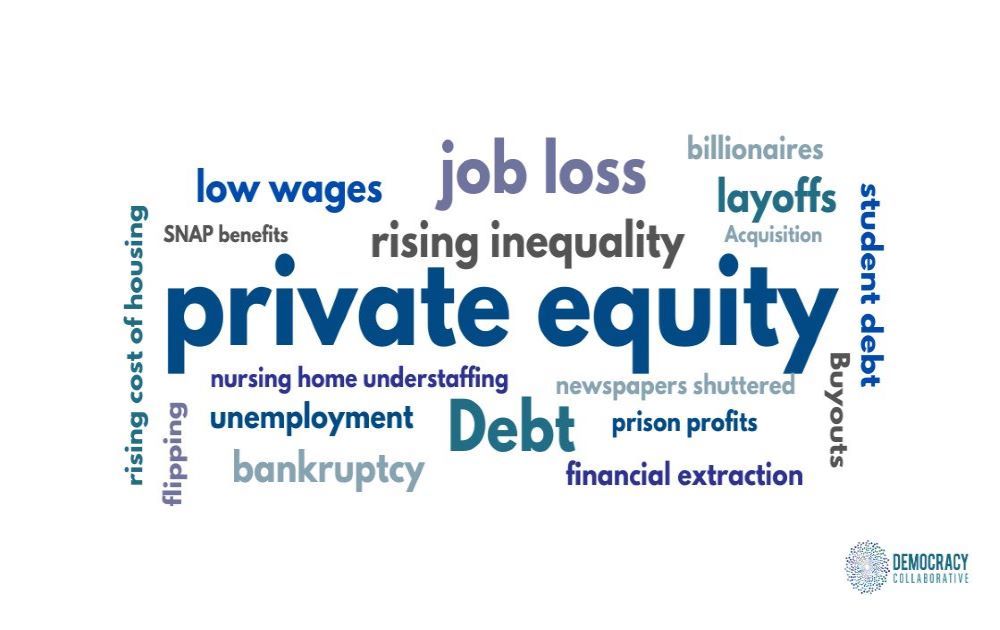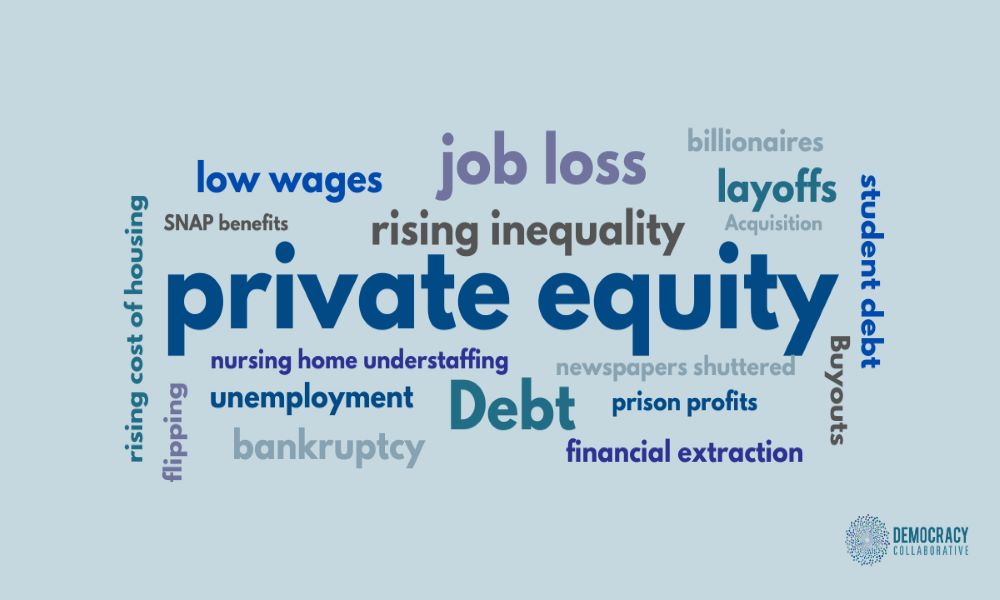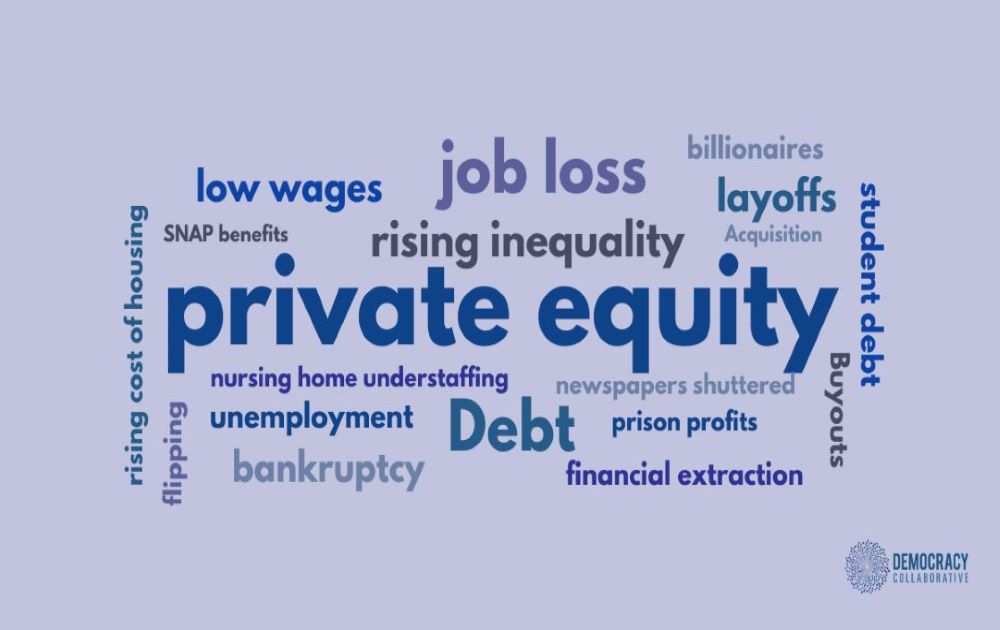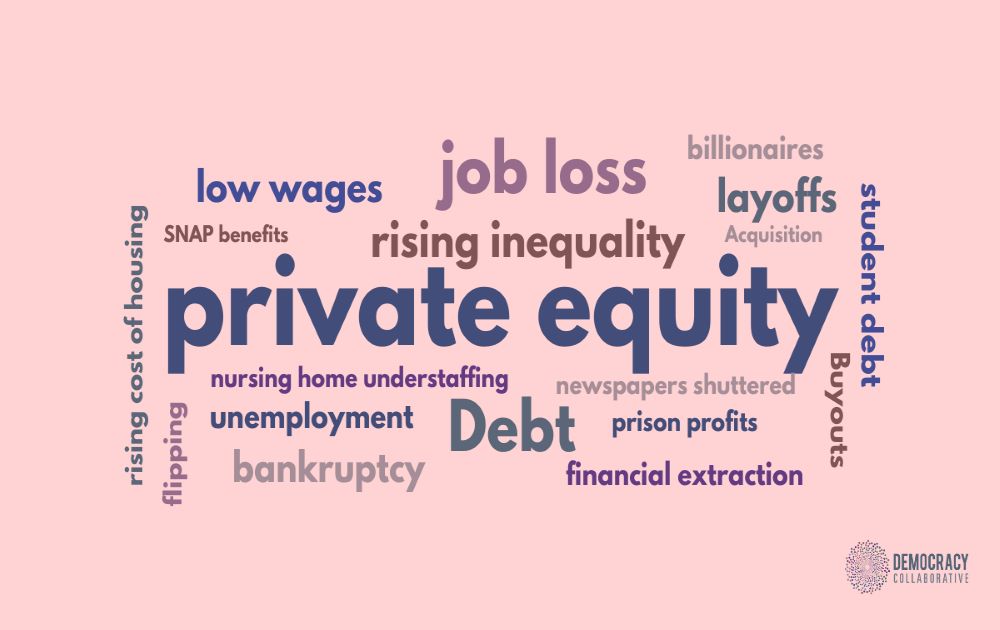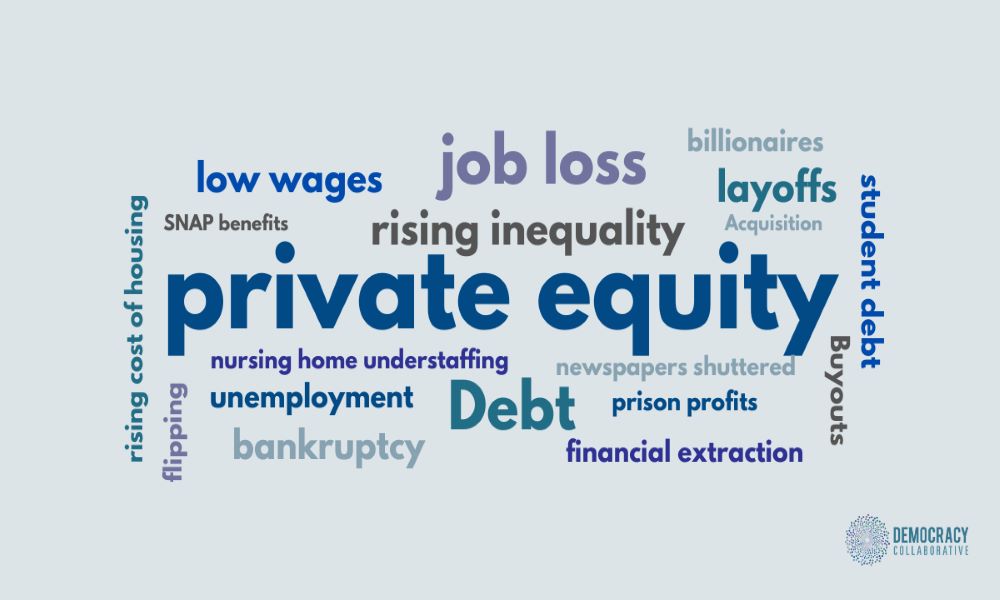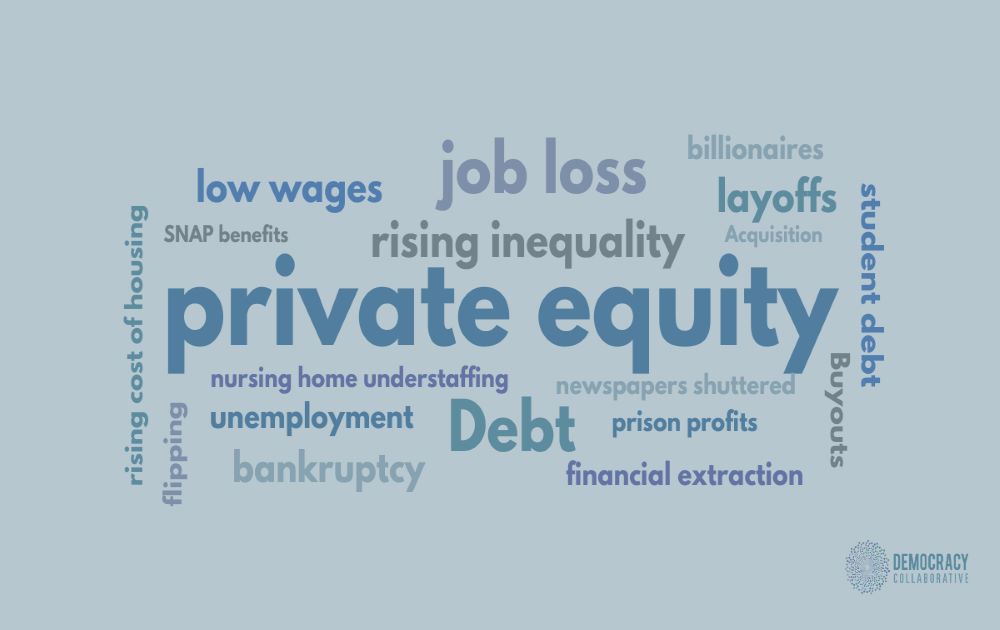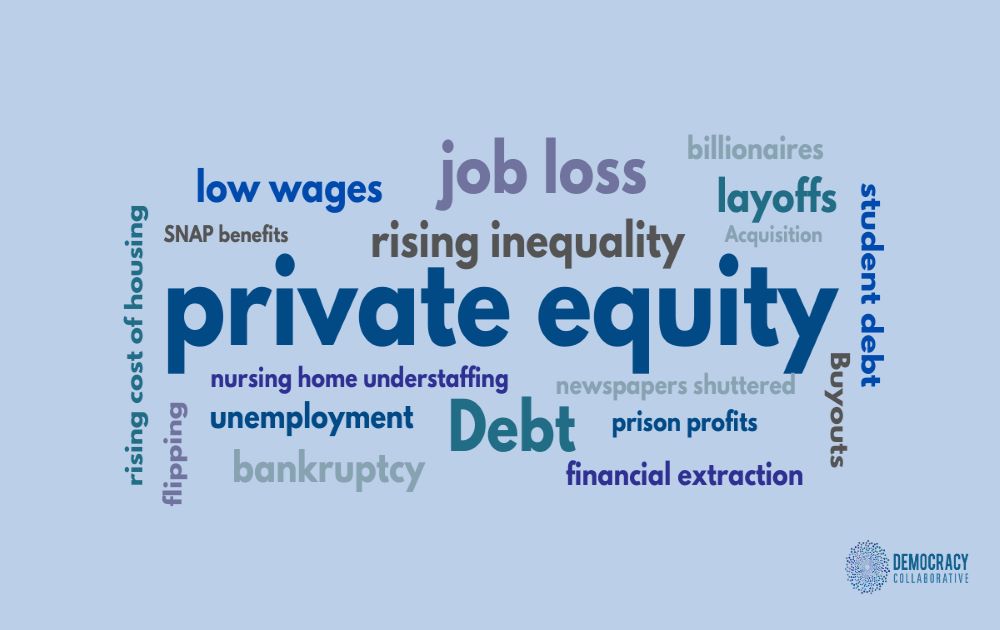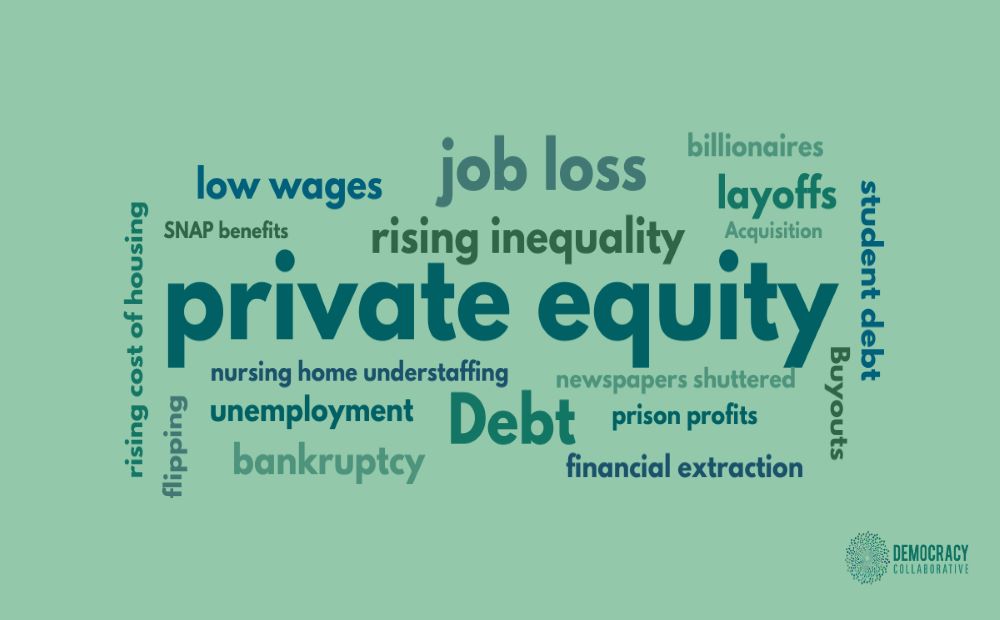Ian MacFarlane is the president of EA Engineering, an environmental consulting firm. In the 1980s, the firm went public and lost its way. The original founder, Loren Jensen, led a move to buy the company back in 2001. Today the firm is 100 percent owned by employees through an ESOP, and it is also a benefit corporation. We spoke to MacFarlane about what it means to embed employee ownership into the culture of workplace.
A colleague spotted an ad in the New York Times announcing the Ownership Works initiative and forwarded it to me, saying he was skeptical. My gut reaction was also negative. It seems they’re doing what big capital does: take over a concept like employee ownership and make it their own in order to make more money. They’re saying all the right things, but really it’s not for the same purpose [as those of us doing real employee ownership].
It seems they’re doing what big capital does: take over a concept like employee ownership and make it their own in order to make more money.
Indications are their model is to give restricted stock units to employees as opposed to the ESOP model. The private equity firm will then sell the firm in three to five years, so they won’t be actually creating an employee-owned company over the long term. They’re using that term “employee ownership” incorrectly. People in the employee ownership field will get this, but many won’t.
Restricted stock has limitations. Employees may hear the glossy pitch and go for it. But by law, certain decisions in an ESOP need to be passed through from the ESOP trustee to the employee owners, and that means employees have a say in whether the company will be sold. A private equity firm wouldn’t want that. They don’t want the employees to have a say. But you can’t develop a true ownership culture if the main thing people get is a financial upside. People need the ability to have a voice and make change. They need the empowerment and psychological safety to do that. That won’t happen with the short-term restricted stock model. The Ownership Works initiative may say it plans to emphasize worker engagement and building financial literacy to improve operations, but a short-term stock ownership model isn’t going to create a true ownership culture. It’s primarily a financial perk.
That’s not for me or anyone at EA. We don’t want to be bought by private equity. Our company is organic, it’s a living system. You can’t put mechanistic decision making in here, with rote rules for profit maximizing. That would destroy our culture and ecological mission. You need decision making with organicity, treating the company like a living organism. This is an ecosystem.
Profit maximizing is like hitting the Easy button. It’s harder to manage for stakeholders, to balance different concerns, listen to multiple voices. Maximizing profits and ignoring most other impacts, that’s pretty easy.
Which brings me to my final point. Private equity is unregulated; ESOPs (as trusts), by contrast, are highly regulated by ERISA as a retirement vehicle to protect the employees. I fear there will be trouble ahead for the little guy. The PE money looking for a profitable home, the professional investors, they will likely do just fine, but at whose expense? As “greenwashing” is to CSR [corporate social responsibility], might this be “PE washing” of responsible investment? Although I will happily reverse myself if I am wrong in my speculation once more transparency is produced, I have my doubts.
Read our entire series on Ownership Works and the impact of private equity on the employee ownership field.
Is Private Equity about to Co-opt Employee Ownership?
What the launch of the nonprofit Ownership Works could mean to the employee ownership movement.
Continue Reading Is Private Equity about to Co-opt Employee Ownership?
Are the Barbarians at the Gate?
Part 1: Can private equity be trusted to prioritize worker benefit?
Jim Bonham: Enter the Dragon?
Making modest investments to a non-profit in order to take shelter from the negative public sentiment resulting from the massive and growing wealth inequality in America is a cheap way to diffuse heat.
Are the Barbarians at the Gate?
Part 2: If equity shares increase workers’ productivity, who benefits?
Delilah Rothenberg: A step in the right direction, but only one piece of the puzzle
As long as the wealth of GPs grows exponentially faster than that of everyone else, economic inequality will continue to grow.
Continue Reading Delilah Rothenberg: A step in the right direction, but only one piece of the puzzle
Ian Mohler: A Piece of the Pie Is Better than No Slice at All
Offering equity to workers is a good thing, and we can argue later about what share of the pie is most appropriate.
Continue Reading Ian Mohler: A Piece of the Pie Is Better than No Slice at All
Are the Barbarians at the Gate?
Part 3: Is this real employee ownership?
Joseph Cureton: Success is more than an increase in financial value
I see this as an opening, an opportunity for the idea of worker ownership to become more mainstream.
Continue Reading Joseph Cureton: Success is more than an increase in financial value
Andrea Armeni: An Opportunity to Spur Deep Structural Change
Ownership Works can be a conversation starter and spur conversations about who is creating the value and who should capture it.
Continue Reading Andrea Armeni: An Opportunity to Spur Deep Structural Change
Andrea Dehlendorf: Working with Private Equity to Make Jobs Better
Americans need to better understand the role of Wall Street and private equity in our economy.
Continue Reading Andrea Dehlendorf: Working with Private Equity to Make Jobs Better
Will Equity Shares Improve Outcomes for Workers?
This seems like a time of messy growth for employee ownership.
Continue Reading Will Equity Shares Improve Outcomes for Workers?
To follow Employee Ownership News, subscribe to the Fifty by Fifty newsletter.
